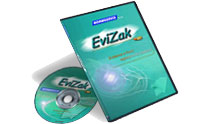Wir benötigen Ihre Einwilligung zur Verwendung der einzelnen Daten, damit Sie unter anderem Informationen zu Ihren Interessen einsehen können. Klicken Sie auf "OK", um Ihre Zustimmung zu erteilen.
ASTM E1523-09
Standard Guide to Charge Control and Charge Referencing Techniques in X-Ray Photoelectron Spectroscopy
Automatische name übersetzung:
Standard-Leitfaden für die Steuerung und Lade Referenzierung Techniques in Röntgen-Photoelektronenspektroskopie Laden
NORM herausgegeben am 1.5.2009
Informationen über die Norm:
Bezeichnung normen: ASTM E1523-09
Anmerkung: UNGÜLTIG
Ausgabedatum normen: 1.5.2009
SKU: NS-42063
Zahl der Seiten: 7
Gewicht ca.: 21 g (0.05 Pfund)
Land: Amerikanische technische Norm
Kategorie: Technische Normen ASTM
Die Annotation des Normtextes ASTM E1523-09 :
Keywords:
charge control, charge referencing, charging, X-ray photoelectron spectroscopy, Surface analysis--spectrochemical analysis, Auger electron spectroscopy (AES), Bias referencing, Charge control/referencing, Gold decoration, Gold metals/alloys, Inert gases, Internal referencing, Key referencing, Surface charging, X-ray photoelectron spectroscopy (XPS), ICS Number Code 71.040.50 (Physicochemical methods of analysis)
Ergänzende Informationen
| Significance and Use | ||||||||
|
The acquisition of chemical information from variations in the energy position of peaks in the XPS spectrum is of primary interest in the use of XPS as a surface analytical tool. Surface charging acts to shift spectral peaks independent of their chemical relationship to other elements on the same surface. The desire to eliminate the influence of surface charging on the peak positions and peak shapes has resulted in the development of several empirical methods designed to assist in the interpretation of the XPS peak positions, determine surface chemistry, and allow comparison of spectra of conducting and non-conducting systems of the same element. It is assumed that the spectrometer is generally working properly for non-insulating specimens (see Practice E 902). Although highly reliable methods have now been developed to stabilize surface potentials during XPS analysis of most materials (5, 6), no single method has been developed to deal with surface charging in all circumstances (10, 11). For insulators, an appropriate choice of any control or referencing system will depend on the nature of the specimen, the instruments, and the information needed. The appropriate use of charge control and referencing techniques will result in more consistent, reproducible data. Researchers are strongly urged to report both the control and referencing techniques that have been used, the specific peaks and binding energies used as standards (if any), and the criteria applied in determining optimum results so that the appropriate comparisons may be made. |
||||||||
| 1. Scope | ||||||||
|
1.1 This guide acquaints the X-ray photoelectron spectroscopy (XPS) user with the various charge control and charge shift referencing techniques that are and have been used in the acquisition and interpretation of XPS data from surfaces of insulating specimens and provides information needed for reporting the methods used to customers or in the literature. 1.2 This guide is intended to apply to charge control and charge referencing techniques in XPS and is not necessarily applicable to electron-excited systems. 1.3 The values stated in SI units are to be regarded as standard. No other units of measurement are included in this standard. 1.4 This standard does not purport to address all of the safety concerns, if any, associated with its use. It is the responsibility of the user of this standard to establish appropriate safety and health practices and determine the applicability of regulatory limitations prior to use. |
||||||||
| 2. Referenced Documents | ||||||||
|
Empfehlungen:
EEviZak – alle Gesetze einschließlich ihrer Evidenz in einer Stelle
Bereitstellung von aktuellen Informationen über legislative Vorschriften in der Sammlung der Gesetze bis zum Jahr 1945.
Aktualisierung 2x pro Monat!
Brauchen Sie mehr Informationen? Sehen Sie sich diese Seite an.




 Cookies
Cookies
